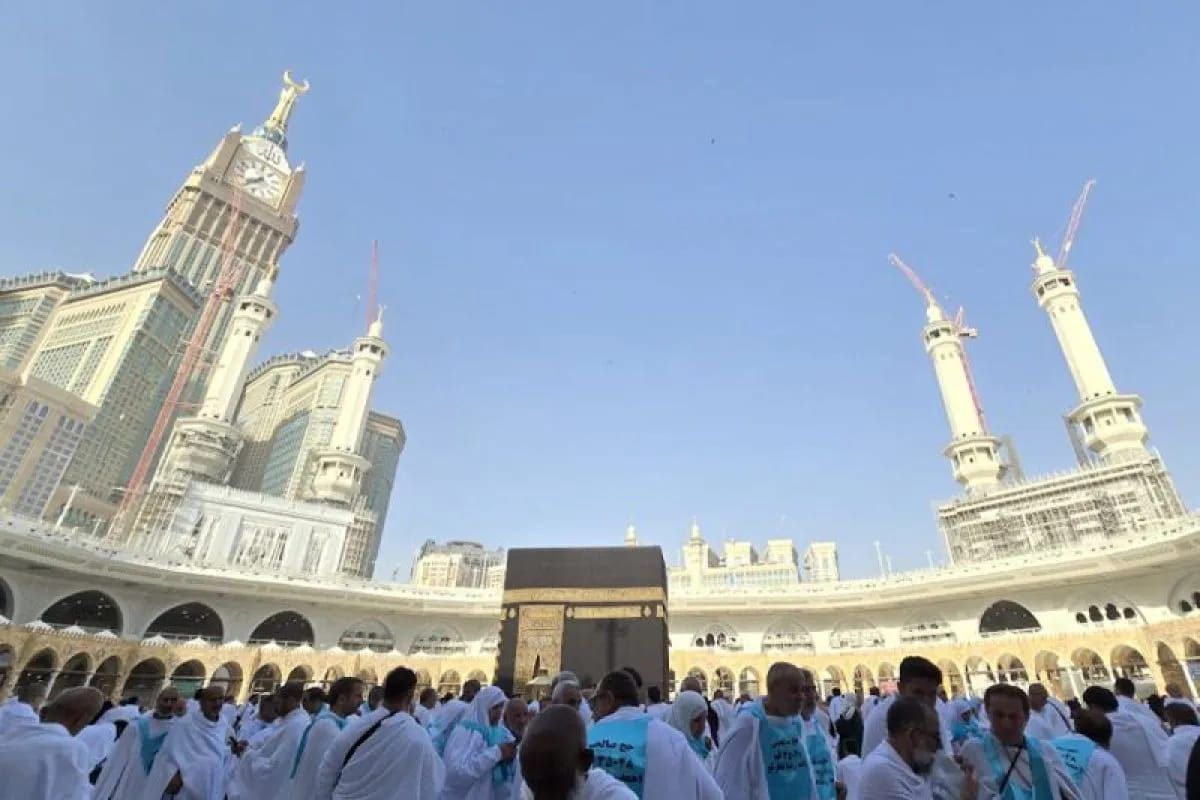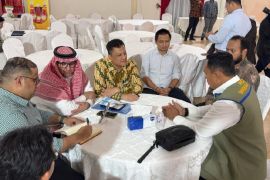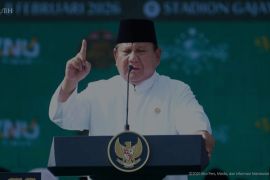Currently, the government, along with Commission VIII of the House of Representatives (DPR), is discussing the revision of the law.
Several public hearings have been held with religious organizations, academics, and government representatives, such as the Religious Affairs Ministry, Hajj Organizing Agency, Transportation Ministry, and Health Ministry, to ensure public participation in the revision of the law.
Given the complexity of Hajj implementation, discussions about it must involve multiple parties. This is because it not only covers religious matters, but also pilgrim transportation, health, and consumption.
Chair of Commission VIII of the DPR, Marwan Dasopang, said that the revision of the Hajj Law is crucial to adjust it to the current dynamics, both in Indonesia and the policies of the government of Saudi Arabia.
Law Number 8 of 2019 is not relevant now, because it no longer responds to the needs for the implementation of Hajj and Umrah properly.
Several things outlined in the existing law are no longer relevant to the current situation, particularly in terms of institutional and implementation matters.
In terms of institutional matters, he said that the Hajj Law must emphasize that Hajj implementation is the responsibility of the Hajj Management Agency. The agency can even be transformed into a ministry.
Given the dynamics, Hajj affairs can no longer be handled by the Ministry of Religious Affairs, considering that the ministry is also tasked with handling other issues, such as community guidance and religious education. Thus, it is necessary to form a special institution to handle them.
Meanwhile, in terms of Hajj implementation, the revised law must include a resolution related to the issue of long Hajj queues in the country.
For example, in Bantaeng district, South Sulawesi, the waiting period for people to participate in the pilgrimage is 49 years. This has eroded the hope of older adults about performing the Hajj.
One of the solutions to address the problem of long Hajj queues in Indonesia is to utilize the Hajj quotas of other countries. Therefore, this approach needs to be regulated in the law, which is currently being revised.
At present, several recommendations have been included in the Hajj law revision, for instance, the integration of digital services and the transparency principle.
There are proposals from several parties regarding the integration of digital services to increase transparency in the management of Hajj finances by the Hajj Fund Management Agency (BPKH).
However, before the digital services are implemented, it is necessary to consider the understanding of the pilgrims regarding digitalization, considering the large number of prospective elderly pilgrims and those coming from remote areas.
The dissemination of information on digitalization is necessary, considering the varied backgrounds of Indonesian Hajj pilgrims.
Furthermore, there is also a recommendation to regulate the potential of the independent Hajj policy, which is challenging to implement in Indonesia.
New schemes such as independent Hajj can shift the interest of pilgrims from special and invitation-based furoda Hajj to the independent Hajj system, which is deemed more flexible.
This would have an impact on the management of Hajj finances; If Saudi Arabia opens independent Hajj, the departure pattern will change. Pilgrims who have chosen the furoda scheme will be able to switch to independent Hajj.
The revision will also focus on several crucial aspects, including Hajj dormitory management, the assignment of Hajj officers, and the investment of Hajj funds in Saudi Arabia.
Dasopang said that the need for long-term investment in the hotel and catering sectors needs to be regulated in the revision of the Hajj and Umrah Law to increase the benefits for pilgrims.
"The change considers aspirations regarding the developments in Saudi Arabia, including contracts, hotels, catering, and Armuzna (services in Arafat, Muzdalifa, and Mina). Saudi Arabia now needs long-term contracts, no longer annual," deputy chair of Commission VIII, Abdul Wachid, said.
To improve the implementation of the Hajj through the revision of the Hajj Law, Islamic organizations have made several recommendations, including the addition of representatives of those organizations in the leadership of the Indonesian Hajj mission in Saudi Arabia.
According to the secretary general of the central executive board of the Islamic Community Union (DPP PUI), Kana Kurniawan, this is essential to ensure that their representation in the implementation of Hajj is more equitable.
More inputs can make the revision of the Hajj and Umrah Implementation Law more comprehensive and reduce the potential of missing important issues.
Comprehensive and constructive discussions are highly necessary, considering that the revision of the Hajj and Umrah Implementation Law is a strategic measure to improve the quality of Hajj services in Indonesia.
By adjusting the regulations to the latest dynamics, both in Indonesia and in Saudi Arabia, it is hoped that the implementation of the Hajj pilgrimage can run more efficiently and transparently and provide comfort to all pilgrims.
Collaboration between the government, the legislature, and various related organizations is the key to success in revising the law.
Related news: BPKH targets hajj fund management benefits to exceed Rp11 trillion
Related news: RI Govt aims to enhance Hajj economic ecosystem for pilgrims
Related news: RI Govt continues to enhance protection of Hajj pilgrim data
Translator: Tri Meilani, Raka Adji
Editor: Azis Kurmala
Copyright © ANTARA 2025












